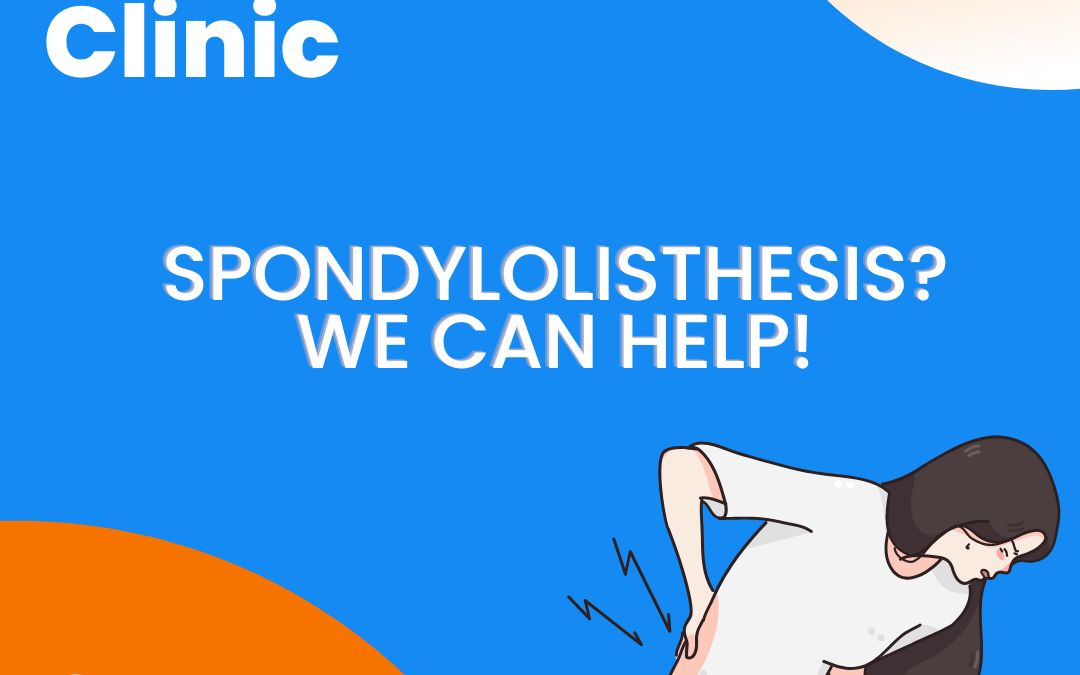Spondylolisthesis is a spinal condition in which one vertebra in the spine slips out of its normal position and moves forward or backward compared to the adjacent vertebrae. This condition can occur anywhere in the spine but most commonly affects the lower back or lumbar spine.
There are several types of spondylolisthesis, including:
- Congenital spondylolisthesis: This type of spondylolisthesis is present from birth and is caused by an abnormality in the development of the spine.
- Isthmic spondylolisthesis: This type of spondylolisthesis is caused by a defect in the pars interarticularis, a small bony segment that connects the facet joints in the spine.
- Degenerative spondylolisthesis: This type of spondylolisthesis is caused by age-related changes in the spine, such as degeneration of the intervertebral discs and facet joints.
- Traumatic spondylolisthesis: This type of spondylolisthesis is caused by a spinal injury.
Spondylolisthesis can be caused by various factors, including:
- Congenital condition: Some people may be born with a defect or weakness in the vertebrae that makes them more susceptible to slipping.
- Degenerative changes: As people age, the intervertebral discs, which act as cushions between the vertebrae, can wear down and lose their ability to absorb shock. This can cause the vertebrae to shift out of place.
- Trauma: A sudden impact or injury to the spine can cause one or more vertebrae to slip out of position.
- Repetitive stress: Athletes or people who participate in activities that involve repetitive stress to the spine, such as gymnastics or weightlifting, may develop spondylolisthesis.
The symptoms of spondylolisthesis can vary depending on the severity of the condition. Mild cases may not cause any symptoms, while more severe cases can cause back pain, muscle weakness, numbness or tingling in the legs, and difficulty walking or standing.
Treatment for spondylolisthesis depends on the severity of the condition and the individual’s symptoms. Mild cases may be treated with rest, physical therapy, and anti-inflammatory medications. More severe cases may require surgery to stabilize the spine and prevent further slipping.
Get treatment for spondylolisthesis without surgery here at Capri Spine Clinic.
Contact us or visit us at
#caprispine #spine #deepakcapri #spinepain #spinalcondition #spinepainwithoutsurgery #discprolapse #discbulge #nonsurgical #spondylolisthesis #cervical #lumbar #slipdisc

